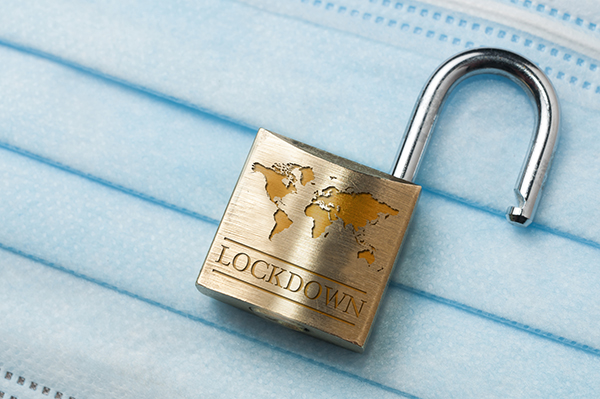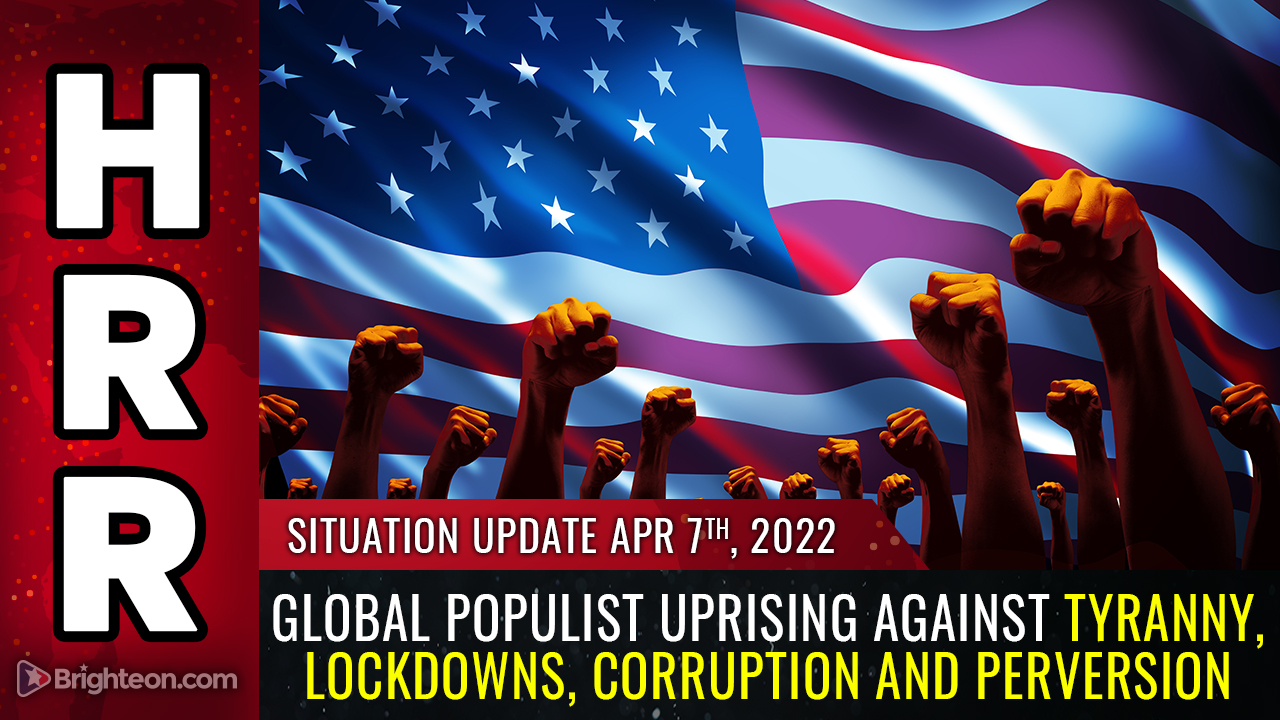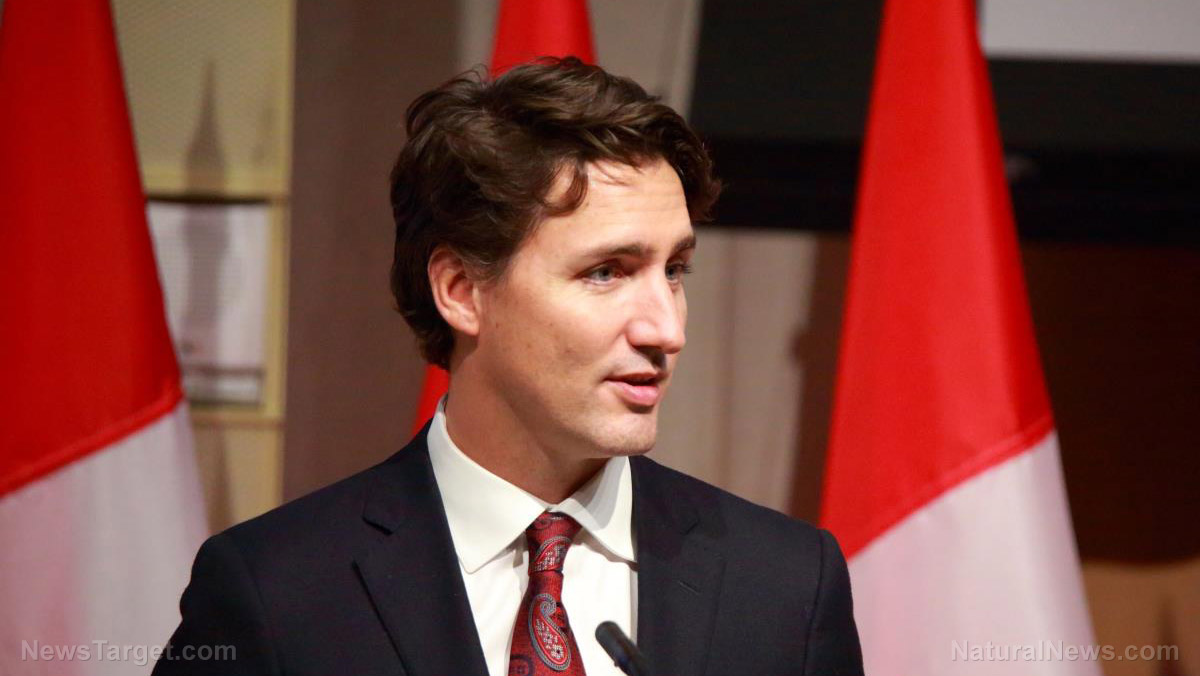POWER CORRUPTS: States push for more emergency powers in an attempt to forever dictate people’s lives
04/08/2022 / By Mary Villareal

Some states are still holding on to the emergency powers that allowed them to dictate people’s lives, whether in the form of banning social gatherings, mask restrictions or vaccine mandates.
Despite many countries around the world already dropping their Wuhan coronavirus (COVID-19) mandates, some states say they need to direct emergency funding and oversee hospitals to keep them from letting go of their emergency orders as public places have now reopened and concerns about the pandemic started fading.
Emergency orders at the state level are supposed to be issued in response to temporary threats such as weather disasters and are usually wrapped up within a few days or weeks. However, with the pandemic exploding in March 2020, most governors issued broad executive orders that effectively banned crowds, closed businesses and imposed mask mandates.
However, critical lawmakers are now challenging the power to take such actions and keep measures in place indefinitely, as pandemic lockdowns have exposed leaders’ stringent authoritarian impulses. (Related: Dr. Robert Malone calls for immediate end to Biden’s national emergency.)
Nick Murray, a policy analyst at the Maine Policy Institute, said that ruling by decree over an extended period during the pandemic is part of a broader move to condense power to the executive branch. “You see these things come into play during a crisis and then [remain in place] to give more executive power. It’s a theme that has devolved into bureaucracy,” he said.
The state of emergency has been declared in perpetuity in Nevada, with lawmakers being unsuccessful in passing measures to limit the authority of Democratic Governor Steve Sisolak.
Orange County residents and officials have been pushing back against pandemic restrictions mandated by California, as virtually all precautions are winding down. In March, Republican state legislators attempted to end Governor Gavin Newsom’s state of emergency, but were shot down by the Democratic supermajority, saying that it needs to stay in place to aid hospitals and emergency responders.
In Kansas, Democrat Governor Laura Kelly also extended emergency authority to January 2023 despite the state’s director of public health questioning the need for a continued state of emergency.
Democratic Governor Roy Cooper from North Carolina also vetoed legislation in November that would require wider input from elected leaders as he continued to issue restrictions under a declared emergency. However, the Republican-controlled legislature got around the veto by attaching provisions to the state’s budget bill, which prevented Cooper from declaring another state of emergency and exercising singular authority for longer than 30 days.
Lawmakers in most states have either passed laws or introduced legislation aimed at curtailing the governors’ emergency authority. These laws include prohibiting mask mandates and business closures as well as setting time limits to emergency orders.
Twelve states, seven of which have Democratic governors and legislature, have emergency powers still in place – others have either ended their emergency or have announced their end dates.
COVID-19 restrictions need legislative oversight
Lori Tremmel Freeman, CEO of the National Association of County and City Health Officials which represents workers in 2,800 municipal public health offices, said people can’t have sweeping legislation based on a single event. “There is a balance that can be found, but some of these have gone to the opposite end of the spectrum that allows them to prohibit [health officials] from doing anything,” she said.
Meanwhile, Jason Mercier of the Center for Government Reform in Washington State said the COVID-19 restrictions need legislative oversight.
There had been varying laws regarding the ending of the emergency powers. In some states, only the governor can end an emergency, but other states give this power to legislators.
Mercier said that in his state, where Governor Jay Inslee controls the statehouse, a state of emergency can be extended indefinitely, and has been, with the Democratic governor insisting that he can rule without agreement from others.
The struggle over emergency powers is happening within states as some cities and counties declared emergencies early in 2020 and used such powers to enact local restrictions.
Follow Pandemic.news for more news related to the COVID-19 pandemic.
Watch the video below to know more about what happens when emergency powers cease.
This video is from the Excellent PODCASTS & Real NEWS channel on Brighteon.com.
More related stories:
Why they want to keep the “health emergency” going forever.
Senate passes bill to end COVID-19 state of National Emergency.
Justin Trudeau crosses the Rubicon and reveals the end stage of fake “liberal democracy.”
Sources include:
Submit a correction >>
Tagged Under:
big government, constitutional issue, corruption, covid restrictions, covid-19, democrats, emergency powers, enslaved, fascism, freedom, government control, Liberty, mask mandates, obey, pandemic, traitors, Tyranny, unconstitutional, vaccine mandates
This article may contain statements that reflect the opinion of the author
RECENT NEWS & ARTICLES
COPYRIGHT © 2017 PENSIONS NEWS



















